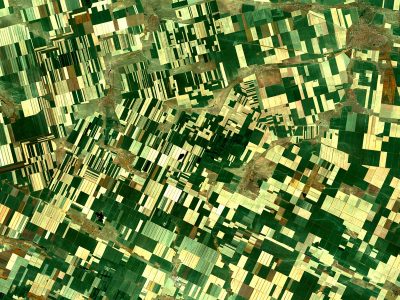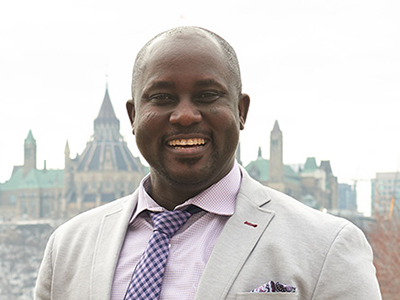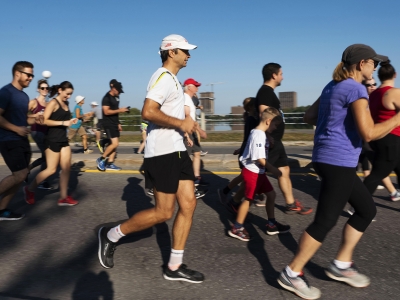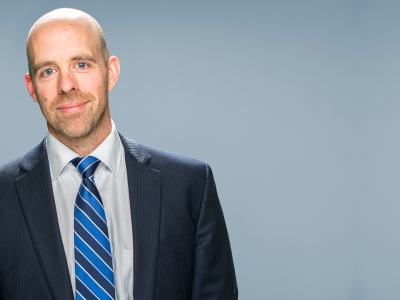By Dan Rubinstein
Photos by Chris Roussakis and Chris Cline
Canada’s scientists-in-training are ready to tackle the most pressing challenges facing people and the planet.
That was the main message shared by teenaged participants, university students, experienced scientists, educators, researchers and distinguished guests at the Canada-Wide Science Fair (CWSF) hosted by Carleton University from May 12 to 19.
The CWSF, an annual event since 1962, brought 500 of the country’s top young scientists and an audience of approximately 10,000 students, teachers, members of the public and government officials to Carleton, including Science Minister Kirsty Duncan and Environment Minister Catherine McKenna.
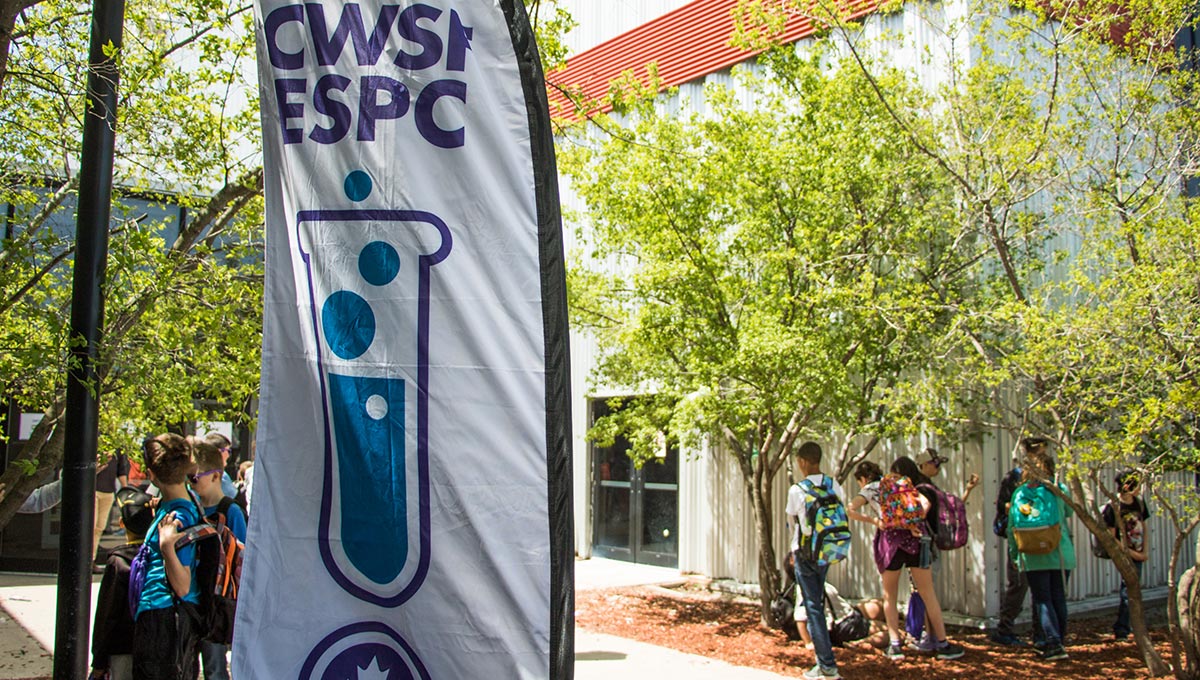
Students gather outside of the Carleton University Fieldhouse, which hosted the 2018 Canada-Wide Science Fair.
Duncan visited the fair on its final morning to celebrate its three Grand Award recipients and winners of the National Sciences and Engineering Research Council (NSERC) Awards for Science Promotion.
“You give us tremendous confidence in the future of Canadian science,” she said to the young people in the audience in the Ravens’ Nest.
“The point of inspiration is critical,” continued Duncan, shifting her gaze to the rest of the gym. “Your commitment to science education and getting our young people excited about science is second to none.”
“Science promotion make a big difference for millions of young lives,” said NSERC President Mario Pinto, “and holds the promise of a bright future for our country. Children are the next generation of science leaders, decision-makers and policy-makers. You are also science ambassadors, and we are counting on you to teach your parents.
“At the end of the day, science is about people,” continued Pinto, “and thanks to the dedication of the people here today, we are truly making Canada a nation of discovery and innovation.”
“I would like to applaud your curiosity,” added Dwight Deugo, Carleton’s interim dean of Science. “Curiosity is going to lead us to our next big discoveries in Canada.”
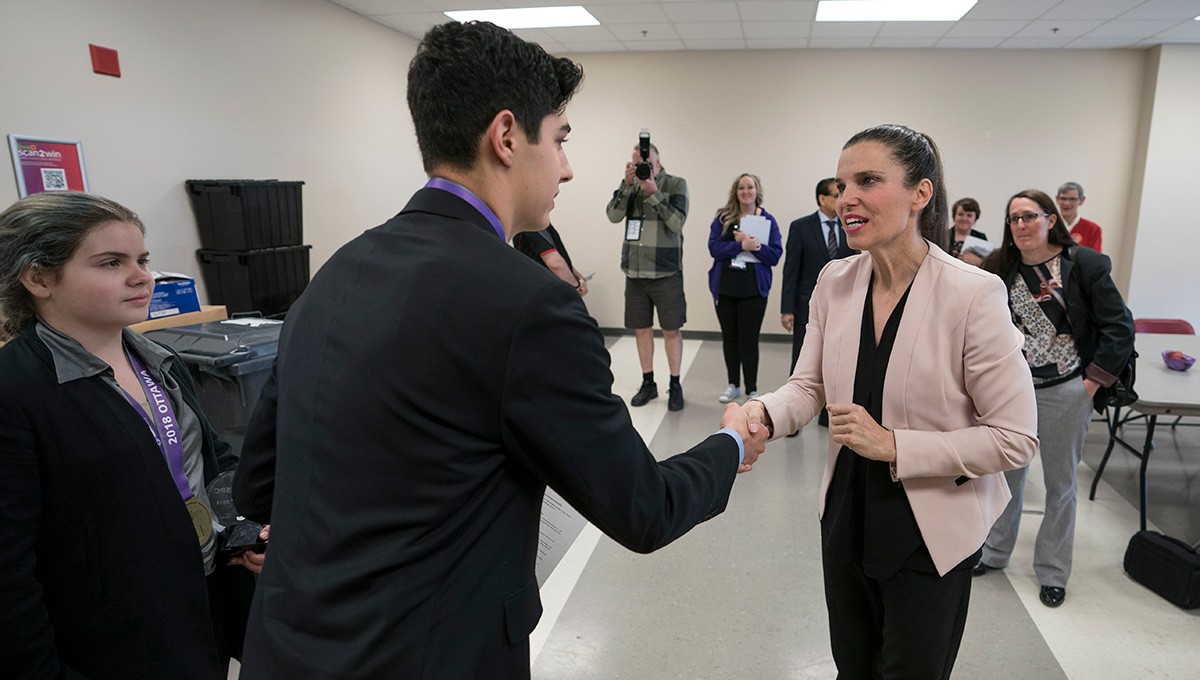
Canada-Wide Science Fair’s Third Ottawa Appearance
The CWSF — organized by non-profit Youth Science Canada and sponsored by Carleton’s Faculty of Engineering and Design (FED) and Faculty of Science, among others — has been held in Ottawa three times, including the inaugural year. Students between the ages of 12 and 18 displayed innovative projects and competed for nearly $1 million in prizes and scholarships.
In addition to the 450 or so projects on display, the CWSF’s STEM (science, technology, engineering and math) Expo featured a couple dozen booths showcasing government agencies such as Parks Canada, Fisheries and Oceans Canada and the Canadian Space Agency, and non-profit science organizations including the Ottawa Reptile and Amphibian Association, Polar Knowledge Canada and Let’s Talk Science.
Both FED and the Faculty of Science also had a large presence at the expo, with several booths and activities featuring technologies and tools used by Carleton students and faculty, such as the Ravens Racing Formula One-style race car, a hands-on virtual reality setup from the Advanced Cognitive Engineering Laboratory, and surveying equipment used by the Architectural Conservation and Sustainability Engineering program.
Science Minister Duncan visits the @CUFRavenRacing booth at #CWSF2018 @cwsf_espc @KirstyDuncanMP @Carleton_U @CUnewsroom pic.twitter.com/fD7stFZC8r
— Carleton Engineering and Design (@CarletonU_Eng) May 18, 2018
“Seeing things like this gets students excited and shows them the type of things they can do at Carleton,” said fourth-year Mechanical Engineering student Michael Forget, the Ravens Racing driver who led the team to a seventh-place finish at a big race in Michigan recently, its best ever result at the annual Michigan race.
“Projects like this show that university can be so much more than sitting in a classroom.”
“It’s really fun and engaging being here,” said Biology Prof. Kyle Bigger, who was talking to students from behind a Faculty of Science table that featured microscopes, bones and a replica human arm used for research. “We have interactive things the students can touch and try, including some things they may not have seen before.
“When you see their eyes light up,” said Bigger, “it reminds you why you got into science in the first place.”
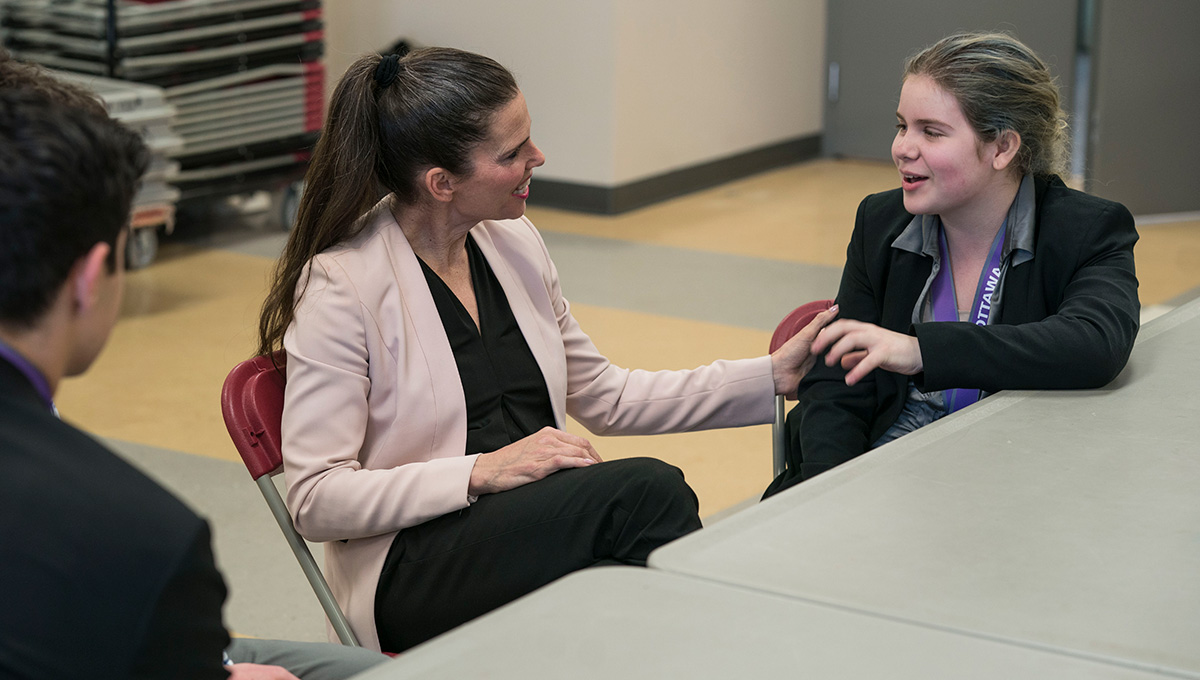
Promoting and Exploring the Sciences
Duncan was at the CWSF to present individual NSERC Awards for Science Promotion to retired Alberta public school teacher and director of technology services, Edna Dach, for her promotion of educational technology, and to Université Laval Emeritus Prof. Jean-Marie De Koninck for his promotion of math and science.
She also presented a group award to Cal Kullman, executive director of the RiverWatch Institute of Alberta, which helps science classes explore their local rivers on raft float trips.
After the NSERC awards, Duncan led a panel discussion with the three CWSF Grand Awards winners — Mac Dykeman, Brendon Matusch and Nicolas Fedrigo — and talked to the students about the inspiration and motivation for their projects.
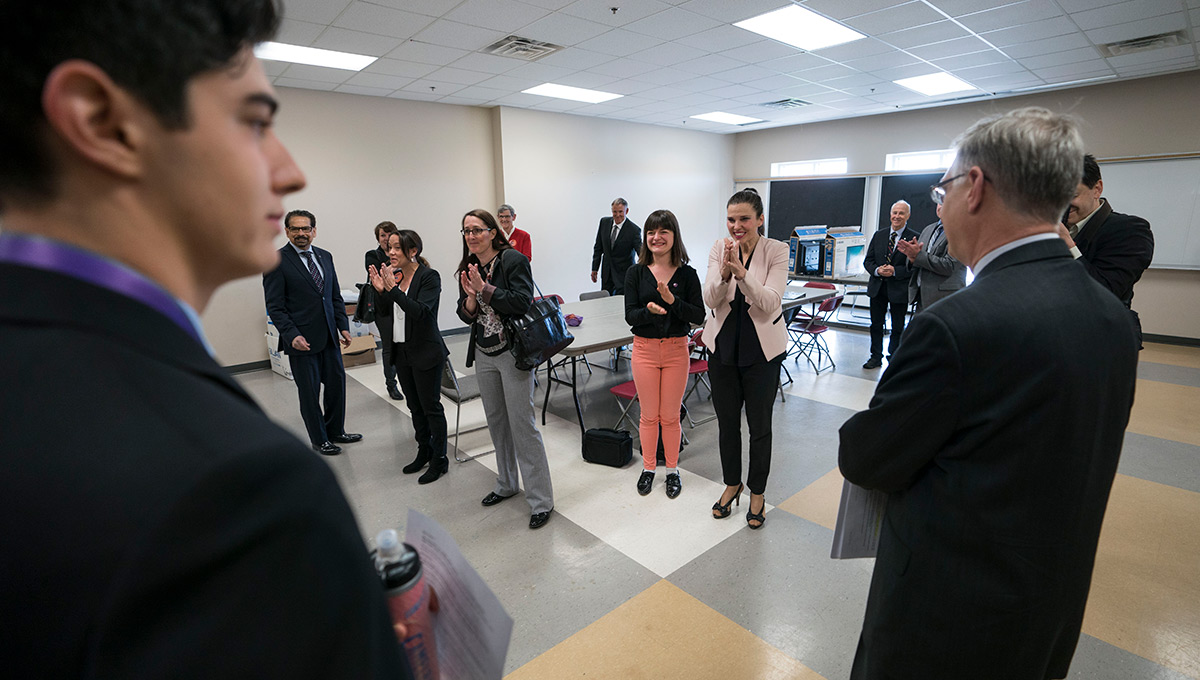
Dykeman, a 12-year-old Grade 7 student from Langley, B.C., won the Best Junior Project prize for “Safer Chick-Ments: An Innovative Solution to Reducing Stress in Chick Shipments.” Concerned with the rate of mortality for live chicks shipped via mail, she designed a new shipping box that minimizes the hazards of high temperatures and structural weakness while addressing poor mobility.
Matusch, 14, from Sudbury, Ont., won the Best Intermediate Project award for “Development of an Autonomous Vehicle Using Machine Learning,” building his own self-driving vehicle by modifying a go-kart with sensors and cameras, which allowed him to train a machine learning system using the same frameworks employed by teams at the leading edge of autonomous driving.
Fedrigo, 17, from Victoria, B.C., won Best Senior Project for “Spinal Fusions: Redesigning the Pedicle Probe to Prevent Vertebral Breaches,” developing an elegant solution with a small motor that allows the probe used to guide screw placement during spinal fusion surgery to distinguish between bone and soft tissue and, by vibrating, give real-time feedback to surgeons.
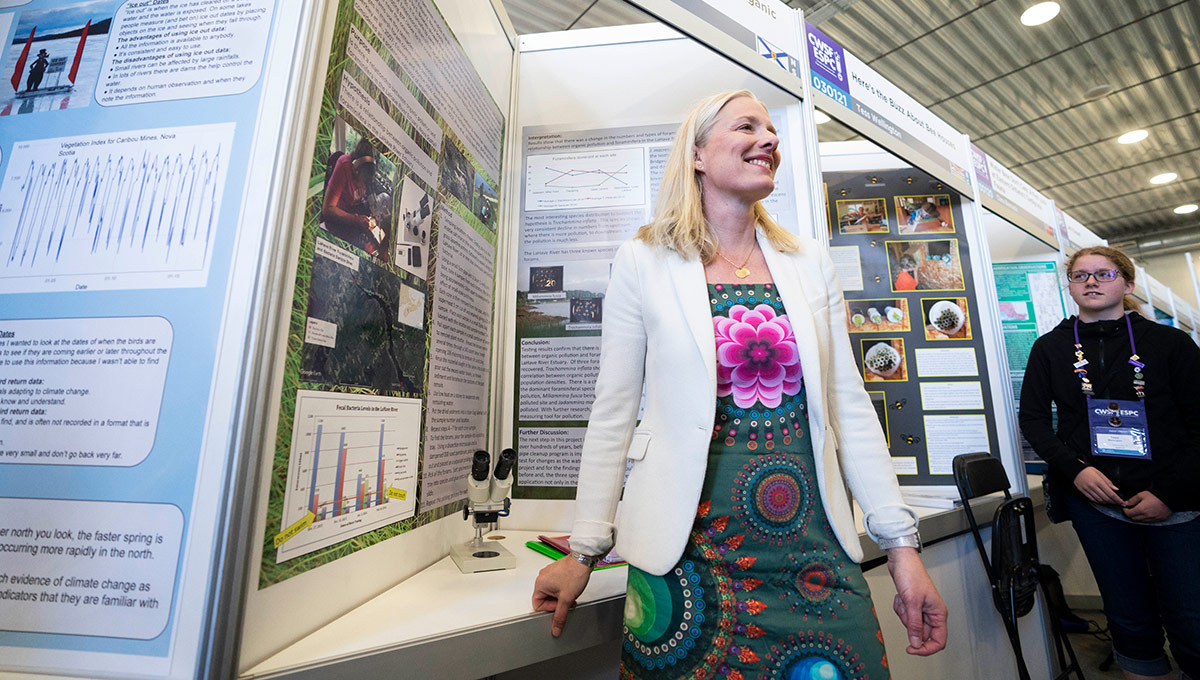
Support and Encouragment for Current and Future Scientists
Before stepping onto the stage, Duncan toured the STEM Expo and stopped to chat with several Carleton students and faculty, including Biology Prof. Steve Cooke and members of his Fish Ecology and Conservation Physiology lab.
Two days earlier, Minister McKenna visited the CWSF and toured the projects in the field house, talking to several students about their work, including Lauren Grace Ohnona, who explored the impact of microplastics on shellfish; Aidan Mundle, who looked at small engine carbon capture; and Jessica Yemen, who addressed water treatment.
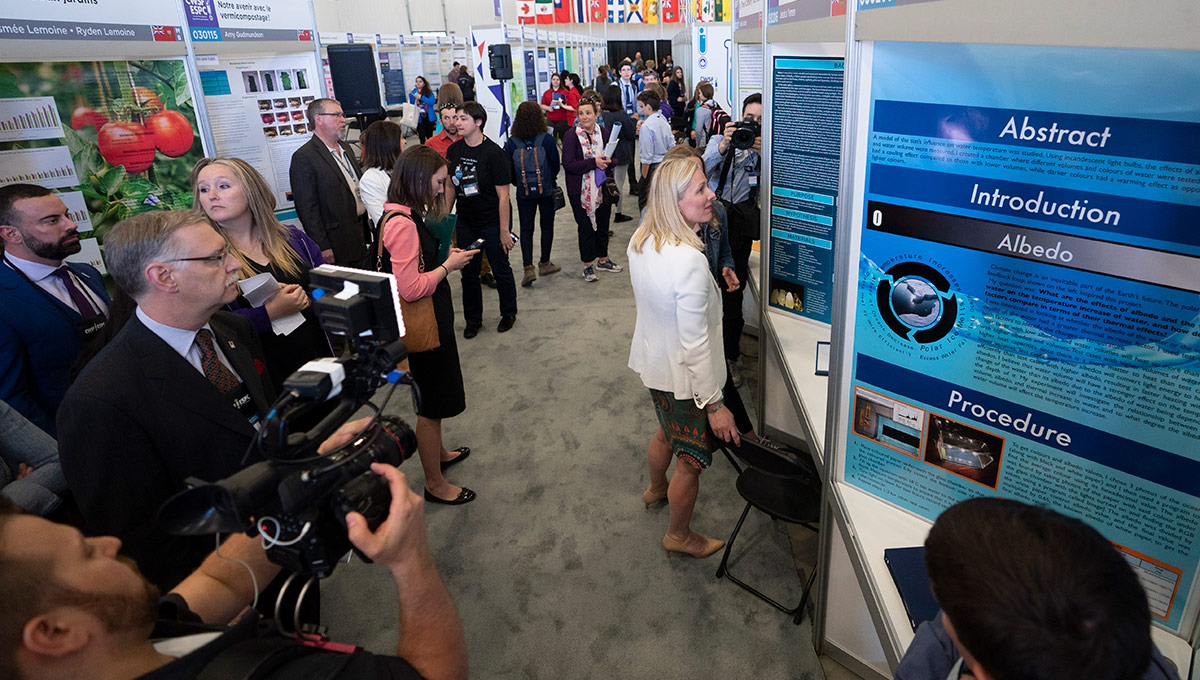
Minister McKenna examines projects at the Canada-Wide Science Fair.
McKenna also stopped by the Environment and Climate Change Canada booth at the STEM Expo, where climate science researcher Steve Howell gave her a GPS-equipped backpack to wear and handed her a snow probe and, in front of an exhibit on changing snow and sea ice in the Canadian Arctic, demonstrated how snow measurements are made in the field.
“You’re a snow scientist now,” he said.
“Maybe you’ll work for Environment and Climate Change Canada someday,” McKenna said to a pair of young students who were watching.
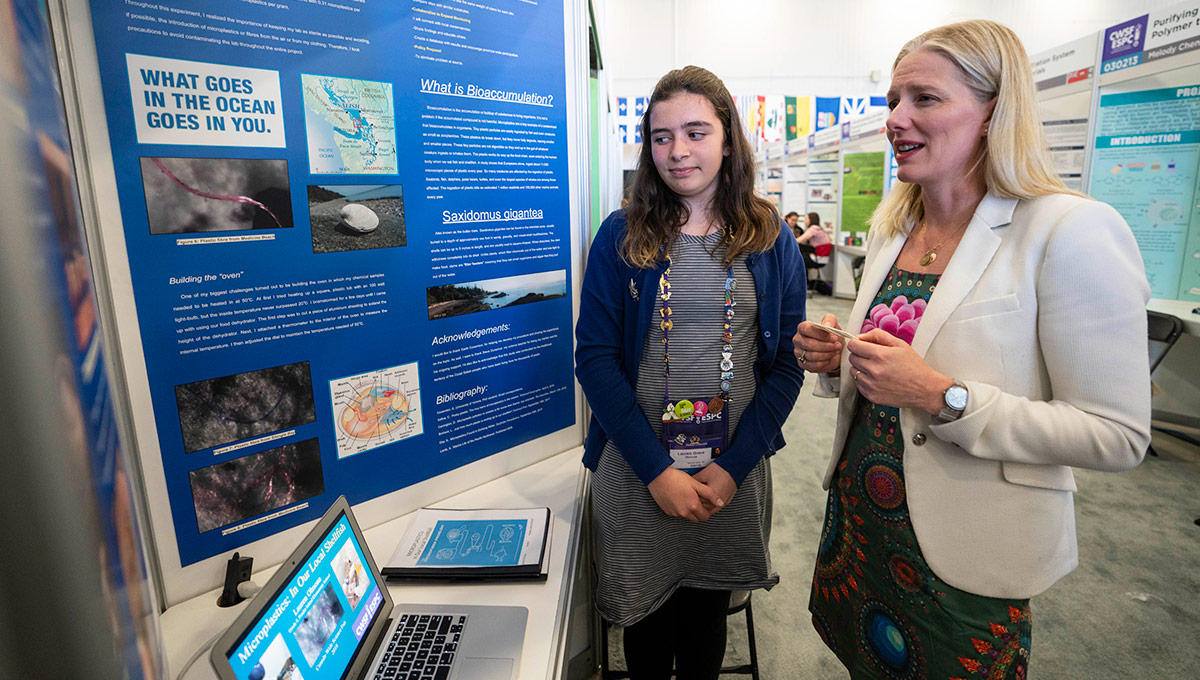
Friday, May 18, 2018 in Engineering, Faculty of Science, Research
Share: Twitter, Facebook
